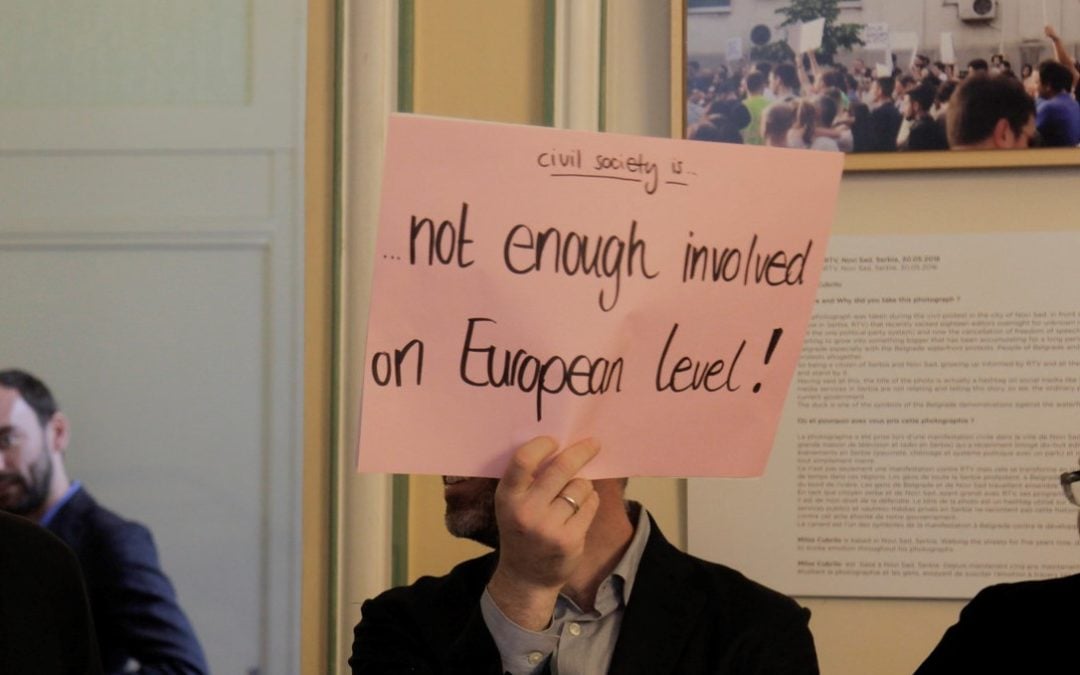
We welcome the European Parliament’s call for EU Treaties reform by a Convention based on Article 48 of the Lisbon Treaty, but we firmly believe that the next Convention requires the voices of citizens and civil society!
The alternative would be again treaty changes negotiated behind closed doors that would alienate citizens from rather than bringing them closer to the European Union.
We welcome the fact that the Parliament’s treaty reform proposals have been inspired by the outcome of the Conference on the Future of Europe (CoFoE), and thus that they are informed by the voices of Europe’s citizens.
Yet, we demand that any treaty revision process ought to include citizen participation, deliberation and consultation from the start and not wait until it will again be too late: failed ratification referendums.
We therefore propose to amend the Art. 48 ordinary treaty revision procedure by constituting an INCLUSIVE CONVENTION that BUILDS ON THE PARTICIPATORY AND DELIBERATIVE DEMOCRATIC ACHIEVEMENTS of the Conference on the Future of Europe and, in particular, the European Citizens’ Panels.
More democracy, accountability and inclusion
We welcome the resolution’s commitment to democratic reform, inclusion and an improved velocity of decision making.
However, the proposals regarding the democratic life of the EU remain deceptively modest:
-
Concerning the European Citizens’ Initiative (ECI) the EP report fails to turn it into a real instrument of citizen empowerment, as it renounces any obligatory follow-up.
-
Despite the CoFE – ECP 2’s call for establishing European citizens’ assemblies on the “basis of legally binding EU law” (36.7), no such instrument is mentioned by the EP report.
-
The most disappointing shortcoming of the proposed amendments, however, remains the lack of considering the inclusion of citizens in the proposed Convention!
While we recognise that the Parliament has sought to consider representatives of the Union’s social partners, the European Economic and Social Committee, the Committee of the Regions and representatives of candidate countries, we regret that the opportunity was missed to also include European citizens and civil society, for them to participate, deliberate and build ownership of EU Treaties reforms through the Convention!
The next step
The European Parliament has taken a necessary first but not sufficient step to prepare the EU for coping with present and future challenges more effectively, in particular in the context of its next enlargement.
We now call on the European Council to exercise its competences to take the next step: to trigger a transparent convention process that will engage citizens by convening a transnational, randomly selected citizens’ assembly that publicly deliberates on EU treaty reform proposals!
If the EU fails to convene such an open, inclusive and transparent process, European civil society organisations will strengthen its work to ensure that citizens’ voices will be heard!


